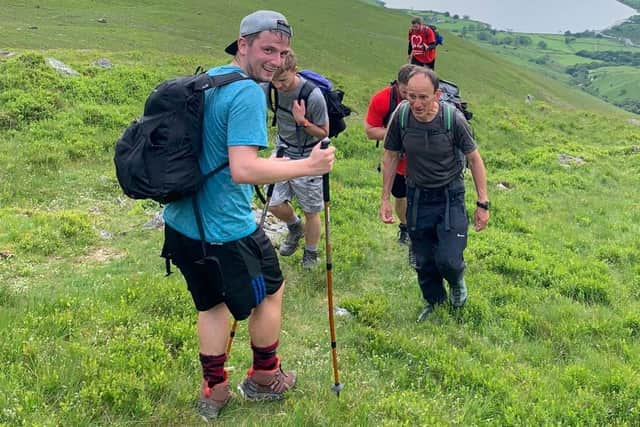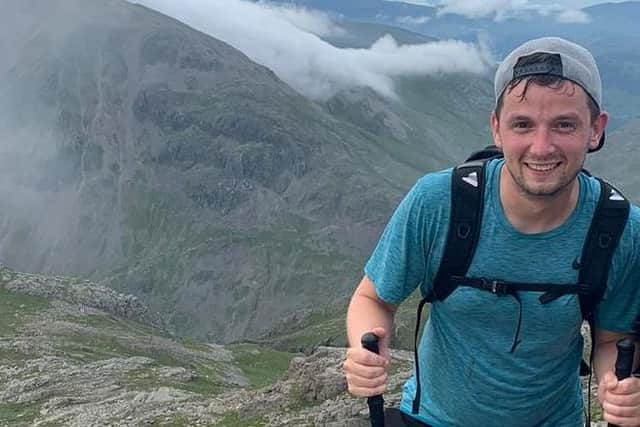Northampton personal trainer set to break world record by walking up Africa's biggest mountain - backwards
and live on Freeview channel 276
A Northampton personal trainer is set to break a world record by becoming the first person to walk up and down Africa's highest mountain - BACKWARDS.
Ben Stewart has previously raised thousands of pounds for charity by scaling several peaks in the UK in the unconventional style.
Advertisement
Hide AdAdvertisement
Hide AdBut the 32-year-old now wants to go one better by trekking up and down Mount Kilimanjaro in February following two months of hard training.


Ben is aiming to become the first person ever to do a backwards ascent and descent of the 5,895m (19,340ft) mountain in Tanzania.
He is also hoping to set a new world record for the fastest time walking up Kilimanjaro while looking over his shoulder.
Ben, from Moulton, said: "It all stems from just wanting to give myself something really unique to work towards.
Advertisement
Hide AdAdvertisement
Hide Ad“As a personal trainer I work with people who run marathons and half marathons all the time but I wanted to do something different.


“I’m pretty much walking backwards for 10 days. It’s going to take us six days to the summit and two days to walk back down, if it all goes to plan.
"The risk of falling off is low - the main problem is is the damage I can do to my neck from looking over my shoulder as I walk, which is why I use a special neck training device.
“We’ll have a huge team with us too – there's six in my team, and with porters and guides we should be a group of about 30.
Advertisement
Hide AdAdvertisement
Hide Ad“I’m looking to be the first to go up and down walking backwards because there’s two legends who have already walked up it backwards. I also want the fastest time.
“This is 2,000 metres more than what I’m used to. But it's like if you want to ride a bike, ride a bike more. You just have to do it.
"From December until February I’ll spend every Sunday walking backwards.”
Ben first began walking backwards as a way to challenge himself and did his first climb in Snowdon, Wales, in June 2019.
Advertisement
Hide AdAdvertisement
Hide AdHe later completed the Three Peaks Challenge of Snowdon, Ben Nevis and Scafell Pike, the three highest peaks of Scotland, England and Wales.
Ben is raising money for the British Heart Foundation in memory of his grandfather who died of a heart attack aged 65 in 2010.
He added: “He was far too young to have a heart attack and pass away from it.
“But now he’s on my shoulder and in my ear telling me I can do these amazing things, and help raise awareness for heart conditions that are so often overlooked.
Advertisement
Hide AdAdvertisement
Hide Ad“I also have my gran, Kathy, who is always so proud and emotionally happy when I tell her about my latest challenge – she's such an inspiration”.
Jon Frost, fundraising manager for the British Heart Foundation, said: “Ben's challenge really is incredible – to do the trek up Kilimanjaro forwards it tough enough but to do it backwards really takes someone extraordinary.
“As well as training for the walk, he’s also busy finding people and local companies to sponsor him which will make the whole thing possible.
“It’s a massive undertaking in every way so we’re absolutely delighted that Ben has chosen BHF to be his partner charity.
Advertisement
Hide AdAdvertisement
Hide Ad“Heart conditions often go undiagnosed for too long, until something goes wrong or it’s too late.
"By funding groundbreaking research, we can get a step closer to breakthroughs that that could help save and improve millions of lives and outsmart heart disease for good."